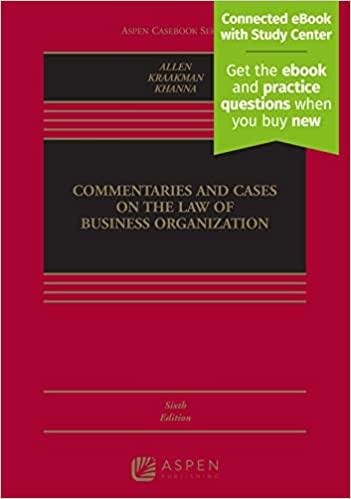Question
Employers do not pay their employees during their lunch hours because: the Department of Labor forbids this practice. they wish to avoid liability for injuries
Employers do not pay their employees during their lunch hours because:
the Department of Labor forbids this practice.
they wish to avoid liability for injuries and damages.
the cost of overtime is too great.
they could be cited for workplace violations by OSHA.
2.in the case of Michael McGroaty, the U.S. District Court ruled that background information relating to a prospective employee's __________ did not violate the California Penal Code.
criminal driving record
misdemeanor convictions for theft
sex offender status
drug addiction history
3.if a test has been properly validated, legally it:
may be used provided it does not discriminate among candidates.
may be used provided it does not create disparate impact.
may be used to discriminate among candidates.
may be used only by law enforcement and firefighter agencies
4.sally quit her job because her supervisor Ace Ventura chewed sunflower seeds all day. The popping noises were driving her crazy. Sally will prevail in a constructive discharge claim only if:
her employer failed to take action to stop the supervisor's actions.
her coworkers defend her decision to quit.
a previous employee quit for the same reason.
a reasonable person would consider chewing sunflower seeds tantamount to an intolerable work environment.
5.in 1991, the Court allowed juries to award punitive damages for Title VII claim when it was determined that:
the employer turned a blind eye to the violations.
a supervisor willfully violated Title VII.
the employer's conduct was especially egregious.
the employee was terminated.
6._________ can operate as a defense to a suit claiming gender discrimination.
There is no defense that
Travel required of the job
A bona fide occupation qualification
Overtime hours required of the job
7.Freedom of religion is:
guaranteed under the First Amendment of the U.S. Constitution.
guaranteed under all state constitutions.
guaranteed under some state constitutions.
guaranteed to public employees but not those who work for private employers.
8.in the 1800s, the average workday exceeded:
8 hours.
10 hours.
12 hours.
14 hours.
9.if an employee falls from a ladder and is injured, he or she:
cannot recover on a worker's compensation claim if a coworker pushed her.
cannot recover if he or she jumped with the intent to sustain an injury.
cannot recover because he or she assumed the risk.
cannot recover if he or she was 51% negligent.
Step by Step Solution
There are 3 Steps involved in it
Step: 1

Get Instant Access to Expert-Tailored Solutions
See step-by-step solutions with expert insights and AI powered tools for academic success
Step: 2

Step: 3

Ace Your Homework with AI
Get the answers you need in no time with our AI-driven, step-by-step assistance
Get Started


